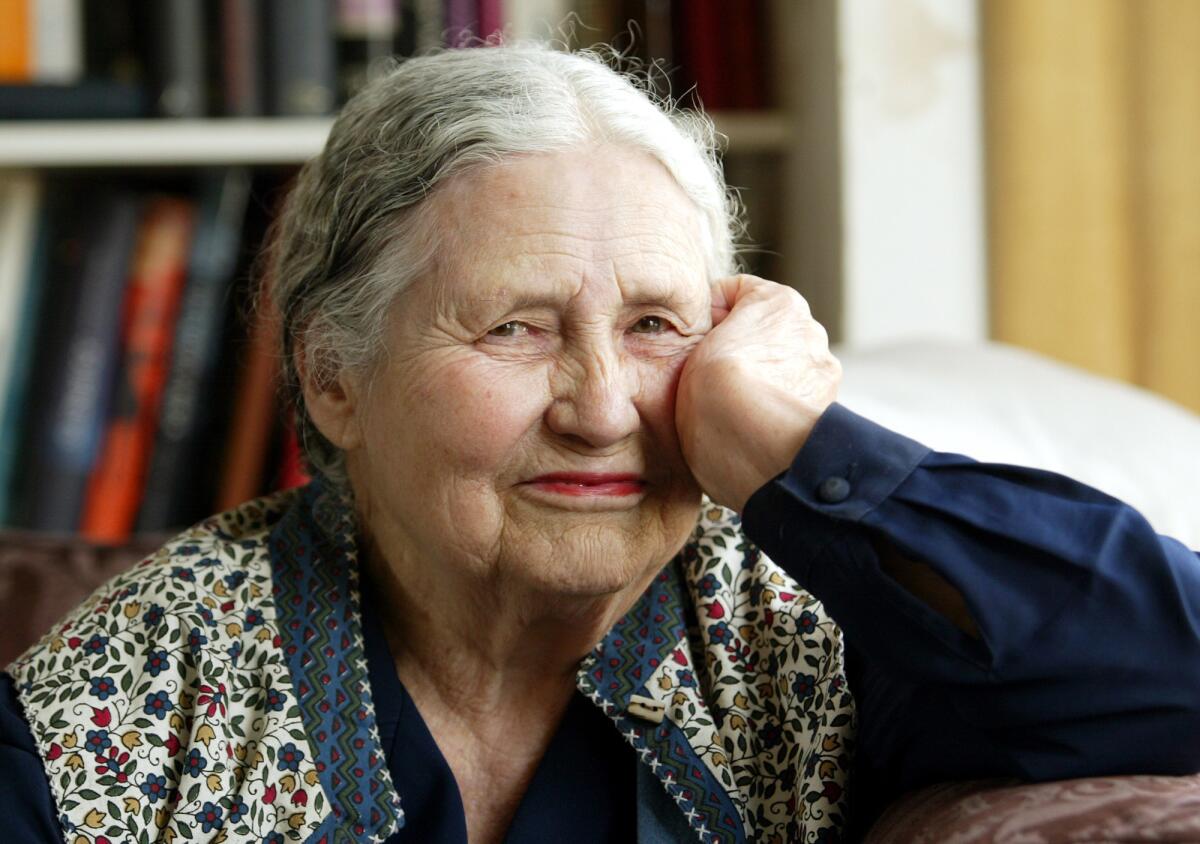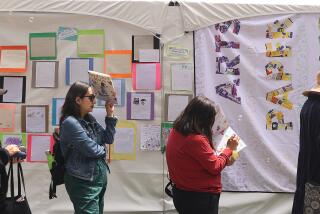More than 3,000 of Doris Lessing’s books heading to Zimbabwe

More than 3,000 books from the personal collection of Nobel Prize-winning author Doris Lessing are headed to the leading public library in Harare, Zimbabwe. The author, who died in 2013 at age 94, lived in Zimbabwe in her youth, when it was Southern Rhodesia.
Lessing was born in Iran to British citizens; the young family moved to Southern Rhodesia when she was around 5 years old. Their house was initially a rough mud hut, but always full of books.
------------
FOR THE RECORD
7:25 a.m. Aug. 28: An earlier version of this post misattributed the family’s thoughts on the donation to Zimbabwean writer Panasahe Chigumadzi.
------------
As a teenager, Lessing struck out on her own and moved to Salisbury -- now Harare -- where she worked as a telephone operator; she was twice married and divorced before moving to England in 1949. Her first book was published in England in 1950; Her best-known novel, “The Golden Notebook,” was published in 1962.
Lessing’s home in London was full of books. Staffers from her publisher, HarperCollins, and the charity Book Aid International told the Guardian that they found books every place shelves could fit, including hallways and under stairs: “there were books everywhere.”
“The donation is being made by various beneficiaries under the will,” a member of Lessing’s family, who chose to remain unnamed, told the Guardian. “In making the donation, the estate and the beneficiaries have responded to a request from the Africa Community Publishing and Development Trust, one of the agencies Doris Lessing worked with in Zimbabwe, that books not needed for a special collection at the University of East Anglia (UEA) be brought to Zimbabwe in honour of her memory and legacy in the country.”
When Lessing was awarded the Nobel Prize in 2007, she spoke of returning to Zimbabwe and the pressing needs of schools there. “In these classrooms are blackboards, but my friend keeps the chalks in his pocket, as otherwise they would be stolen. There is no atlas or globe in the school, no textbooks, no exercise books, or biros. In the library there are no books of the kind the pupils would like to read, but only tomes from American universities, hard even to lift, rejects from white libraries, or novels with titles like “Weekend in Paris” and “Felicity Finds Love.” ... As I sit with my friend in his room, people drop in shyly, and everyone begs for books. ‘Please send us books when you get back to London,’ one man says. ‘They taught us to read but we have no books.’ Everybody I met, everyone, begged for books.”
The website for Book Aid International explains Lessing’s family’s motivations: “In light of consultations conducted in Zimbabwe, agreement has been reached that the recently refurbished Harare city library would be an appropriate home for the collection not only because Doris Lessing lived for some years in Harare, but because she cared deeply about the country and facilitating access to books in Zimbabwe.”
Book news and more; I’m @paperhaus on Twitter
More to Read
Sign up for our Book Club newsletter
Get the latest news, events and more from the Los Angeles Times Book Club, and help us get L.A. reading and talking.
You may occasionally receive promotional content from the Los Angeles Times.







